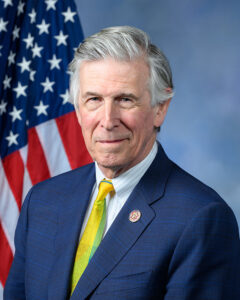Not many years from now, there will be a huge uproar over who missed the coming of peak oil. There will be Congressional hearings and much finger pointing and protestations that the peaking of world oil production was impossible to predict.
It will all sound much like current discussions of whether our great recession was foreseeable. The uproar will come amidst very high gasoline prices and still greater economic difficulties and, hopefully, widespread understanding that the final energy crisis has begun.
Last week we had an early insight into the recriminations when the UK’s Guardian newspaper (formerly the Manchester Guardian) published an exposé on how the world’s official keeper-of-the-books on energy matters, the International Energy Agency (IEA), has been manipulating its forecasts. Two senior IEA officials, one active and one retired, were the sources of the story which was corroborated by others who have had close contact with the inner workings of the IEA in recent years.
The most damning part of the exposé was the allegation the manipulation of the oil production forecasts was done at the behest of the United States government which feared the consequences, should it become generally known and believed that oil soon would no longer be available in unlimited quantities. Oil products would become too expensive for many uses and the world would change forever. The IEA, of course, immediately denied that they were cooking the books to keep the Americans happy. They pointed out that for at least the last two years they have been warning of a near term supply crunch and that hundreds of outside experts reviewed their projections.
The evidence however that their projections were out of line with reality is very strong – whether American pressure was involved or not. Five years ago the IEA was projecting that world oil production would increase by another 35 million barrels per day (since reduced to 20) at a time when existing oil fields were depleting faster and faster. Every serious, unbiased, outside analyst that looked at the numbers said their projections were absurd as they required discovering and producing from new oil fields at a rate faster than had ever been achieved in the history of the oil age.
This, of course, would all be an interesting academic debate except that the fate of industrial civilization over the next century is at stake. Every one looking at the oil depletion problem has concluded it will cost trillions of dollars and take decades to effect a transition from oil to some other form of energy to keep civilization running in a recognizable form. Even then the chances of “success” are not that good. The longer we put off serious planning and implementing this transition to a post fossil fuel world, the worst the situation will get. However, to this day, almost no senior politician anywhere in the world has been willing to step forth and lay out the case that we almost certainly have one of the most serious problems of the 21st century just over the horizon.
We can probably give a pass on responsibility for ignoring peak oil to the Clinton administration. When the administration left office in January 2001 the proximity of peak oil was understood by only a handful of people, and peak production was still five years off. The Bush administration, however, is another matter. By Bush’s second term, the debate over peak oil was going hot and heavy, much research had already been published, and dedicated governmental energy research organizations such as the US’s EIA and OECD’s IEA certainly were aware of the likelihood that large increases in oil production could not continue much longer. Some are already holding the Director of the U.S.’s Energy Information Administration during the Bush Administration responsible for ignoring peak oil and for pressuring the International Energy Agency. For now however we can leave this up to the Congressional investigators.
While In its first ten months the Obama administration has made valiant efforts to stem carbon emissions, so far as is known, it has never mentioned the far more imminent problem of peak oil. Third parties report that Obama’s Energy Secretary Chu understands peak oil and its ramifications, but so far has remained silent as have the President and other senior officials.
The problem of course as we now have witnessed through two US administrations, and numerous foreign ones, is how does a government start to explain the phenomenon, peak oil, and more importantly the extreme sacrifices required to mitigate its occurrence to its citizens. Suppose the President gave a prime-time speech describing the evidence for the proximity of peak oil and laying out proposals to the Congress as to what needs to be done. It does not take a rocket scientist to deduce that there would be a huge political flare-up and likely a collapse of the equity markets. The President’s political opposition, which has yet to figure out just why polar ice caps are melting, would go completely berserk at the hint of restrictions either through taxes or other means on energy consumption.
There would be calls for impeachment and the likelihood that any legislation could be passed that might be helpful in preparing for or mitigating the consequences of global oil depletion for the time being are zilch. The reason of course is that the evidence for peak oil must first become so overwhelming that even the simplest amongst can understand that there is no cheap and easy way out of the problem
All this means that it is unlikely that our leaders will be taking the initiative to head off and attempt to mitigate the consequences of peak oil prior to its arrival. The political consequences of raising the issue in a polarized political world would almost certainly be seen as too uncertain and too severe.












